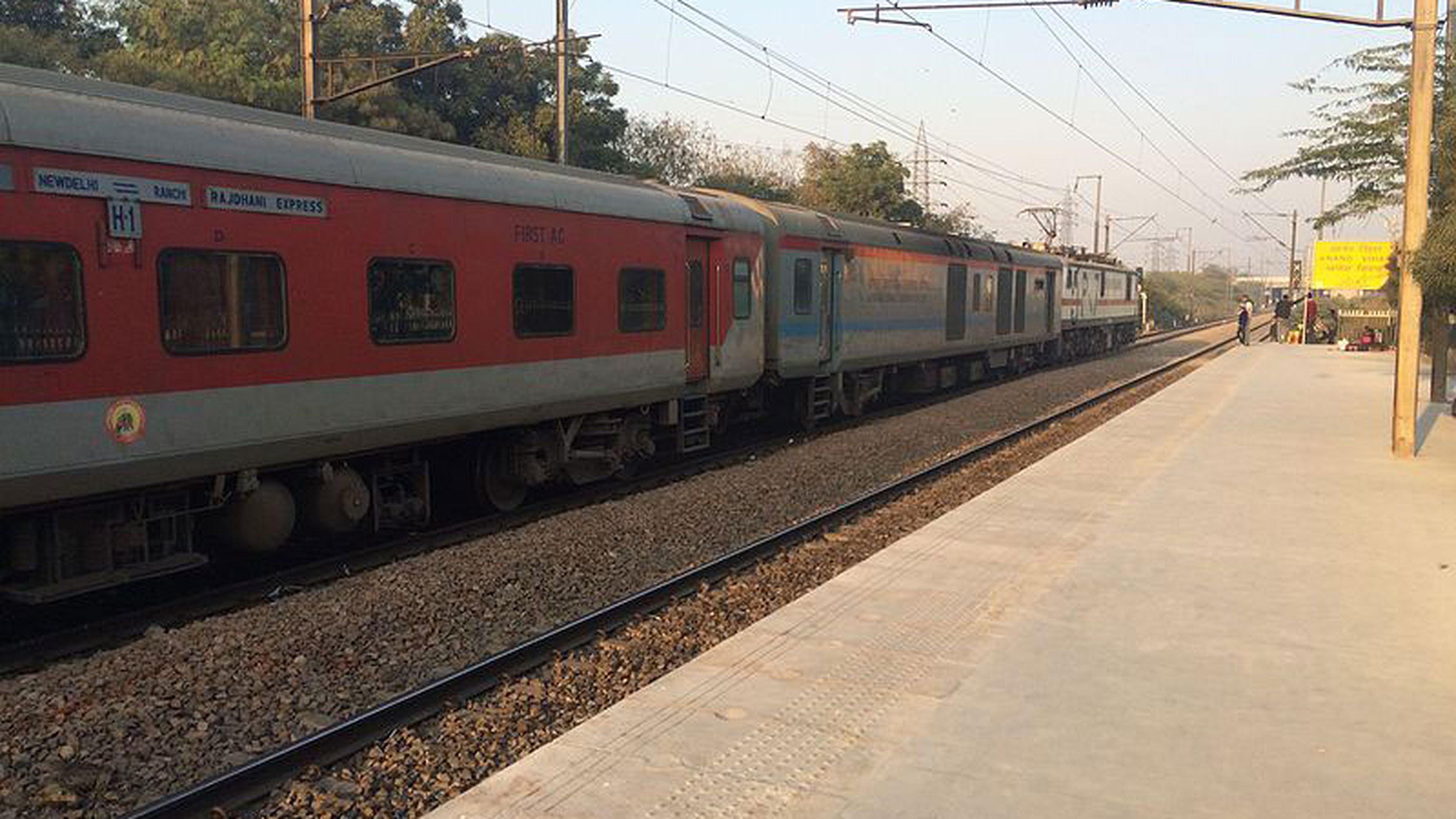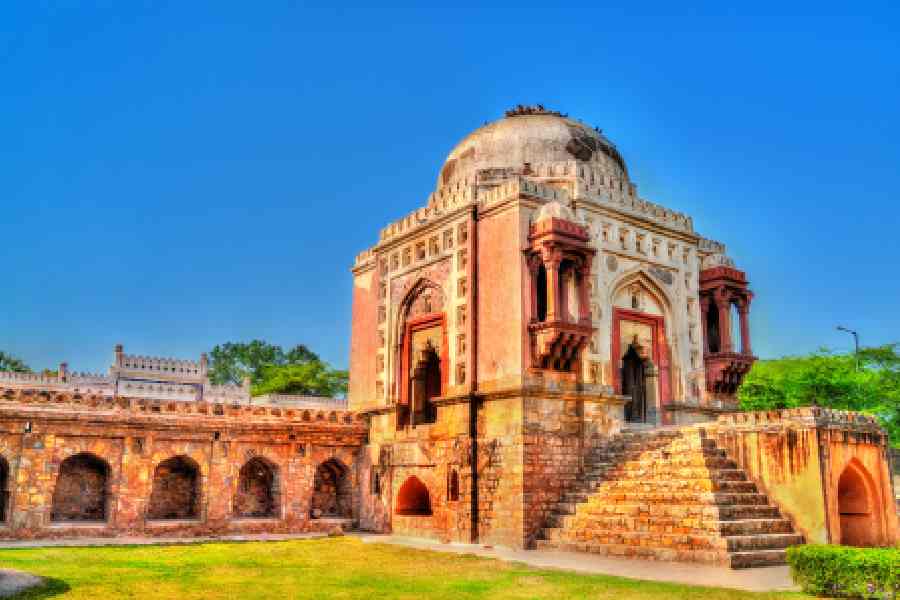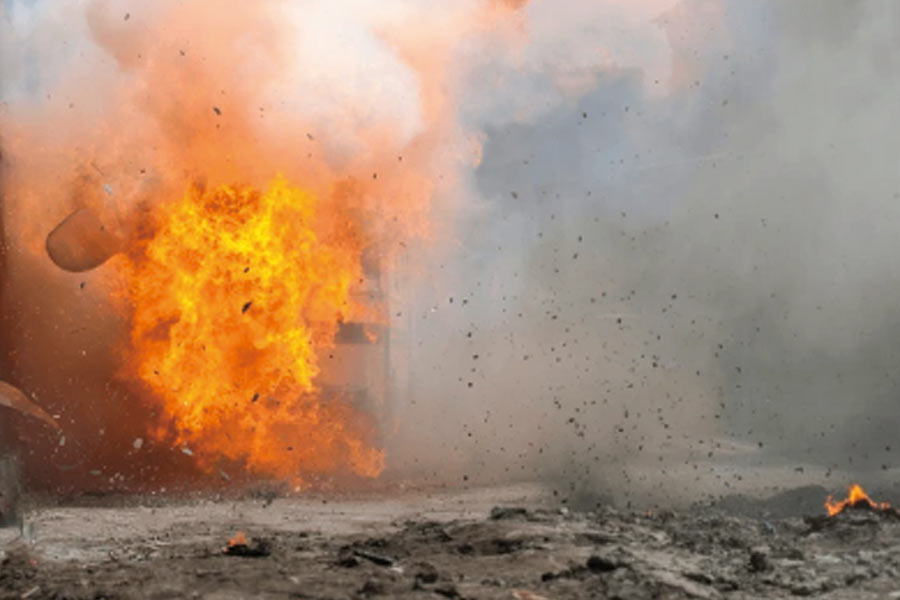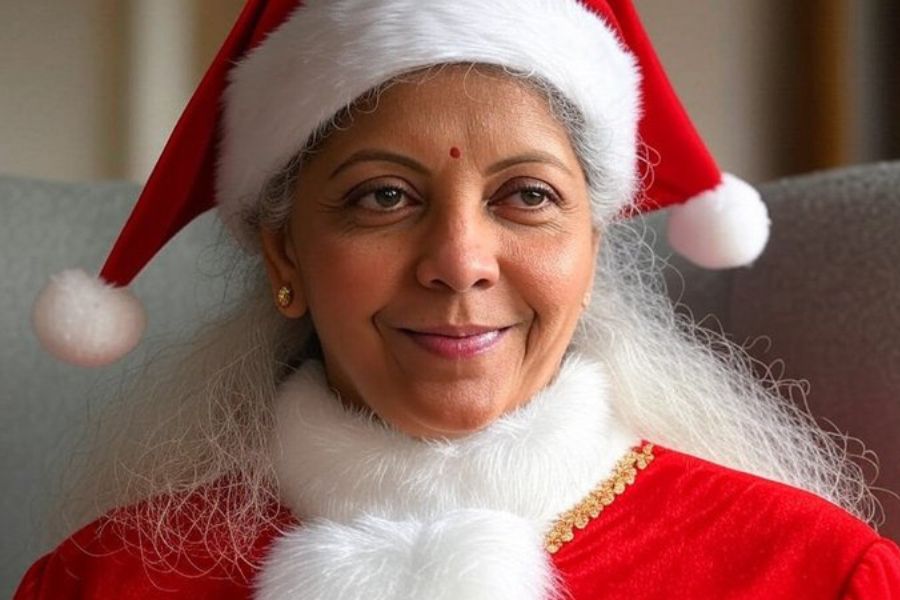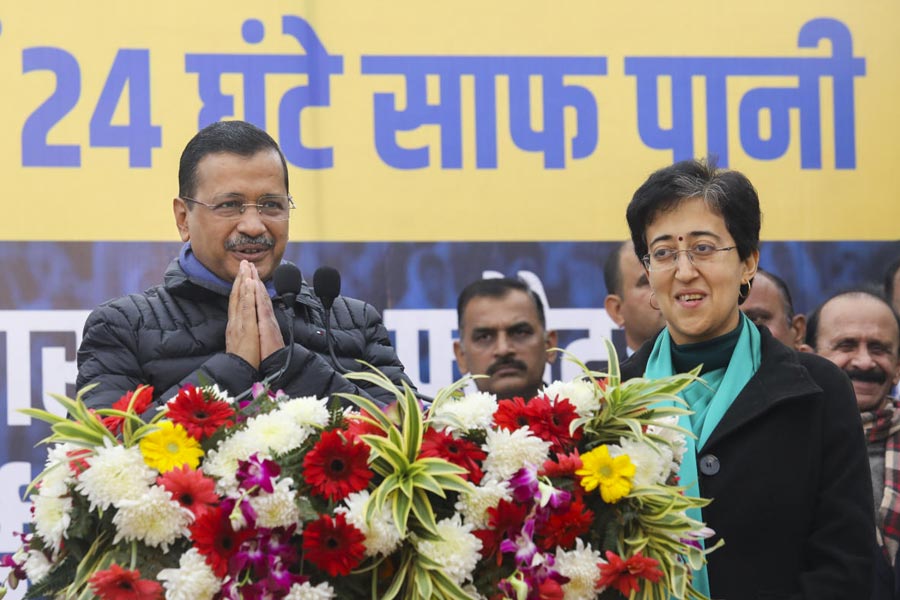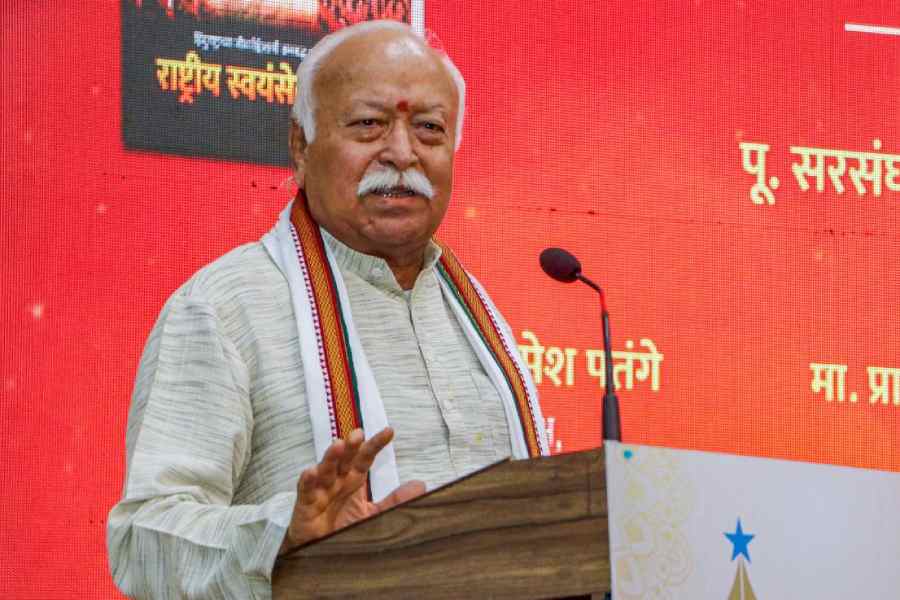The Narendra Modi government has tried to quell criticism over the controversial pricing of tickets for migrant workers who are being ferried on special trains to their homes after a prolonged lockdown by suggesting that the Indian Railways are subsidising 85 per cent of the cost of running these trains — and that state governments are only being asked to pick up 15 per cent of the total tab.
The clarification was issued after the Congress slammed the government for forcing the migrants to pay for a part of the ticket prices, and the party stepped in to bear this cost.
However, the government’s statement is shrouded in confusion since no one really knows how the government works out the cost of running these special trains — a point that the Bibek Debroy committee had emphasised in a report on railway reforms that it had submitted in June 2015.
The Modi government says that the state governments are being asked to pay for 1,200 tickets per train — which it claims works out to 15 per cent of the cost of running the trains. It has also claimed that the railways have ferried almost 70,000 stranded migrants to various parts of the country by “Shramik Special” trains since May 1 at an estimated expense of over Rs 50 crore.
Sources in the railways said the national transporter was spending around Rs 80 lakh per service for the special trains. They added that the railways have run 67 such trains carrying around 70,000 stranded migrants since May 1 — incurring an expenditure of over Rs 50 crore.
While the railways have not officially said how much they have spent on running these trains so far, the government claims the cost was shared in an 85:15 ratio with the states.
The railway officials also indicated that for the first 34 trains, the national transporter spent Rs 24 crore, while the states had spent Rs 3.5 crore.
Lav Agarwal, joint secretary in the health ministry, had said at a press conference on Monday that the railways or the Centre would bear 85 per cent of the costs, leaving the states to cover 15 per cent of the total cost of running a train. He added that it was never the intention to charge the migrant workers for the tickets.
However, there was no explanation from the railways as to how the numbers were arrived at.
“The railways have subsidised 85 per cent and the state government has to pay only 15 per cent. The state government can pay for the tickets (Madhya Pradesh's BJP govt is paying). Ask the Congress state governments to follow suit,” BJP spokesperson Sambit Patra tweeted.
“For each Shramik Express about 1200 tickets to the destination are handed by the railways to the state govt. State govts are supposed to clear the ticket price and hand over tickets to workers,” Patra said in another tweet, adding that no tickets were being sold at the railway stations.
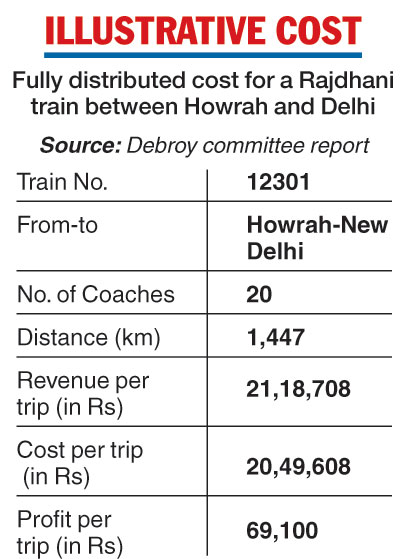
Cost of the train
The size of the subsidy can be determined only if there is a proper mechanism in place to work out the costs of the special trains.
The entire exercise is also muddied by the fact that passenger services continue to be cross-subsidised by freight. Even in a normal year, the subsidy works out to about 43 per cent of the passenger fare.
Back in June 2015, the Bibek Debroy-led committee had said: “Even when the application of commercial principles is possible, Indian Railways doesn’t always do so. The costing of trains is a case in point. One doesn’t quite know how much a train costs. In the present costing system, all annual expenses are allocated to different services and one, thus, arrives at a unit cost for trains. That doesn’t enable one to know how much a specific train costs.”
In the railway budget for 2015-16, the Modi government had said that “it is important to have a regulation mechanism independent of the service provider. Initially, it was contemplated to set up only a tariff regulator. However, it is now proposed to set up a mechanism which will be entrusted with making regulations, setting performance standards and determining tariffs.”
With that brief broadly laid out for the Debroy committee, it suggested the formation of a Railway Regulatory Authority of India (RRAI).
“This committee does not believe that passenger tariff fixation can be left to the market. Therefore, passenger tariffs should be recommended by the regulator,” the committee added.
The regulator was never set up. If it had, it would have been able to lay down a system of working out costs per train and how to recover that cost by pricing tickets in an appropriate way while ensuring that the railways would bear the price of its social responsibility through some element of cross-subsidising tariffs.
“The revenue figures are easier to determine. However, since one doesn’t know how much a specific train costs, one doesn’t know how much of profits a specific train brings in. This is true of both passenger and freight trains,” the committee had said.
This situation still prevails – and the veil of opacity has never been lifted. It has become harder to divine these costs after the government decided to stop presenting a separate railway budget accompanied by a voluminous set of documents.
The Debroy committee did, however, try to work out the cost of a train journey on a set of Rajdhani, Shatabdi and Duronto trains based on the prevailing figures for 2014-15.
This exercise has never been done for ordinary passenger trains – much less for special trains. So, when the government claims that it subsidises 85 per cent of the cost, it must be taken with a pinch of salt in the absence of relevant documents detailing these calculations.
BJP leader B.L. Santhosh waded into the controversy with a tweet that tried to explain how much of the burden the Indian Railways was shouldering.
“Railways already subsidises 57 per cent of passenger fare. One-third passengers & empty train on return journey adds another 28 per cent. This 85 per cent is borne by railways. It’s asking another 15 per cent from states of origin not #MigrantLabourers,” he tweeted.
“Talked to Piyush Goel’s office. Govt will pay 85% and the State Govt 15%. Migrant labour will go free. The Ministry will clarify with an official statement,' BJP leader Subramanian Swamy said in a tweet.
The ministry has yet to put out that clarification.
All that is available on its website is a May 2 notification which says that each originating state would indicate the exact number of passengers travelling in the special train.
It added that the railways would print the tickets and hand them over to the local state government authority which was asked to “collect the ticket fare and hand over the total amount to the railways” – which started the entire controversy.
The railways are struggling with the burden of Rs 40,000 crore in losses in the last fiscal on passenger earnings alone – and are obviously reluctant to add to it.
But as thousands of migrants throng the stations, a humanitarian question hangs in the air: who should really pay? One suggestion is that it ought to come out of the PM CARES Fund, which was set up precisely to deal with the Covid-19 crisis.

